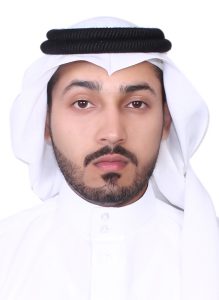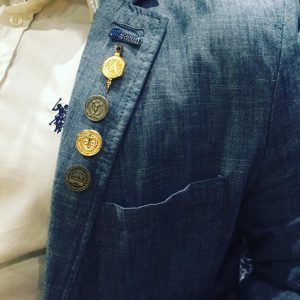Ahmed Ali is an international student from Saudi Arabia, where he completed his first bachelor’s degree in laboratory medicine.
Since childhood, Ali was always passionate about science. That passion kept growing through the years, particularly in the medical field. He chose to study biomedical engineering as it combines both medical sciences and innovation.
At the beginning, his transition to the U.S. was a cultural shock, as he was a new international student from the Middle East with a conservative background. With time, it became the norm for him. Ali is most thankful to FIU for its diversity which helped new, transitioning, international students like himself to get involved with different social clubs and organizations.
“One of my favorite things about FIU is its respect for all religions. Both MMC and EC campuses have a dedicated a multi-faith room for any religion so that students can practice their rituals,” noted Ali.
Like all students, Ali faced a few obstacles during his academic career. “My biggest obstacle came when I was completing my first bachelor’s degree in laboratory medicine… I had no time management skills at the time. I was naïve, I wasn’t taking school seriously, and as a result, I graduated with a low GPA. I saw how my peers were doing so well and many of them were attaining scholarships to study abroad. I knew that I was capable of even greater things. I continued to study and prepared myself to take the SAT again, as well as IELTS for English proficiency. Soon after, I applied to FIU and got accepted into FIU’s BME undergraduate program with a scholarship from Saudi Arabia called the “King Abdullah Scholarship”.
 Through his struggles, Ali kept himself motivated at all times. At FIU, he has managed to partake in 5 honor organizations (Tau Beta Pi Engineering Honor Society, Alpha Eta Mu Beta National Biomedical Engineering Honor Society, Omicron Delta Kappa National Leadership Honor Society, National Society of Collegiate Scholars, and Golden Key International Honor Society), is a candidate for three medals at FIU (Excellence in Leadership, Excellence in Civic Engagement, and Excellence Global Learning), and is a member of our department’s CURE Program as a researcher. “Being recognized by the CURE program twice as a trainee and a researcher motivated me to keep striving for the best,” said Ali.
Through his struggles, Ali kept himself motivated at all times. At FIU, he has managed to partake in 5 honor organizations (Tau Beta Pi Engineering Honor Society, Alpha Eta Mu Beta National Biomedical Engineering Honor Society, Omicron Delta Kappa National Leadership Honor Society, National Society of Collegiate Scholars, and Golden Key International Honor Society), is a candidate for three medals at FIU (Excellence in Leadership, Excellence in Civic Engagement, and Excellence Global Learning), and is a member of our department’s CURE Program as a researcher. “Being recognized by the CURE program twice as a trainee and a researcher motivated me to keep striving for the best,” said Ali.
Ali also noted that one of the key factors necessary in order to succeed is to participate in a research lab under the supervision of a faculty member that will expand your knowledge about the field and will prepare you for either post graduate studies or industry work.
Ali has worked as undergraduate research assistant in two labs. In the Memory and Development (MaD) lab with Dr. Aaron Mattfeld in the Psychology Department, the main research focus was investigating how the brain supports learning and memory and how development and neurodevelopmental disorders change these basic cognitive processes. In the Tissue, Engineered, Mechanics, Imaging and Materials (TEMIM) Lab with Dr. Sharan Ramaswamy in our BME department, Ali worked mainly on 3-D bioprinting for heart valves using synthetic protein based biocompatible hydrogel.
“FIU played a major role in preparing me for the real world through the programs they offer”, said Ali. His participation in the Certified Student Leader Program, Academy of Leaders, and honor and professional organizations include workshops in professional development, leadership, and more. “I am particularly intrigued by the Wallace H. Coulter Foundation Lecture Series offered by our biomedical engineering department, which includes weekly presentations from top professors and professionals in the field of biomedical engineering to talk about their research and latest innovations,” said Ali.
Ali’s advice for managing his time includes planning ahead. Ali says, “Plan ahead to fit all your commitments then prioritizing the tasks according to their difficulties and due dates. Avoid postponing a planned task that will ruin your plan for other tasks”.
His goals for the future include pursuing a Ph.D. in biomedical engineering. With a strong interest in cardiovascular, he hopes to improve and develop cardiovascular engineering research in his native country. “I want to lead this field,” says Ali. He aspires to create the foundational bases with the experience and knowledge gained here in the United States.
Ali wanted to share some advice for all of his friends back home: “You will hear that undergraduate students do not have time to balance success, achievements and good academic standing at the same time. Take me as an example for time management skills. Set your priorities, plan your schedule and never listen to negative opinions. Everything is possible!”
